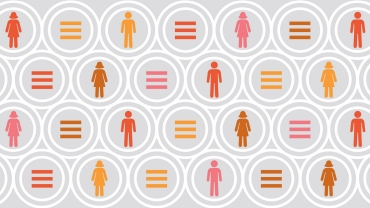
18.3% is the stark figure representing the pay gap between men and women in Switzerland. Social discontent has been increasing, culminating in a "women's strike" this summer. On 21 August 2019, the Federal Council announced amendments to reinforce the equal pay laws.
Who is affected and what are the new obligations?
The new rules apply to organisations employing 100 employees or more. They apply as much to private companies, as well as public organisations (eg. the Confederation, cantons, communes).
An employer needs to do 3 things to comply with the new rules:
- Conduct an internal analysis on pay equality by June 2021 (at the latest)
- Have the internal analysis results validated by an authorised and specially trained independent body
- Communicate results of the analysis to employees
If the employer's internal analysis conducted by June 2021 reveals any unexplainable pay gaps between male and female employees, the employer is obliged to repeat the analysis every 4 years.
The government's free LOGIB tool is accepted for these purposes. The authorities also accept any other scientific method as long as it is legally compliant.

What are the key dates to note?
1 July 2020: Amended law comes into force
By 30 June 2021 (latest): Employers must have conducted their first internal analysis on salary equality
By 30 June 2022 (latest): Employers must have undertaken independent review of the internal analysis
By 30 June 2023 (latest): Employers must have informed employees and shareholders (of listed companies) about the results of the analysis
1 July 2032: The amendment to the law and accompanying ordinance cease to apply after 12 years ("sunset clause").
Parliament introduced the sunset clause as it expects that pay equality will be achieved by then.
So the above obligations only apply between 1 July 2020 - 1 July 2032.
What should affected employers do?
The Swiss government has already started to conduct the analysis internally and have this validated by an external body. It has announced that the results will be published. This demonstrates its genuine desire to lead by example.
The amendments have been criticised for lack of sanctions in case of non-compliance. However, in practice, we believe that the reputational risks of adverse publicity from non-compliance is likely to be significant to most businesses.
Many employers are proactively embracing equal pay already. Typically, this falls within the umbrella of "diversity and inclusion" programs.
Those who have undertaken EQUAL-SALARY certification receive detailed reports, including a list of individual cases where employees are being paid below 5% of their peers who are performing the same work. They are able to work from this to assess whether there are any unexplainable cases to remedy over a period of time and/ or make required adjustments during the annual compensation review cycle. The EQUAL-SALARY certification process also helps companies identify areas for improvement in the top management and HR infrastructure to support and help achieve equal pay.
Closing Remarks
Equal pay does not happen overnight. It requires a mindset shift and takes time (and appetite for "continuous improvement") to instil into the company culture.
Employers who choose to start that journey now show their commitment to embrace diversity and inclusion, increase the proportion of females in the talent and management pipeline, as well as attract and retain talent.
Get in touch with us if you are interested to boost your brand, stay ahead of the competition and hear more about EQUAL-SALARY certification.







